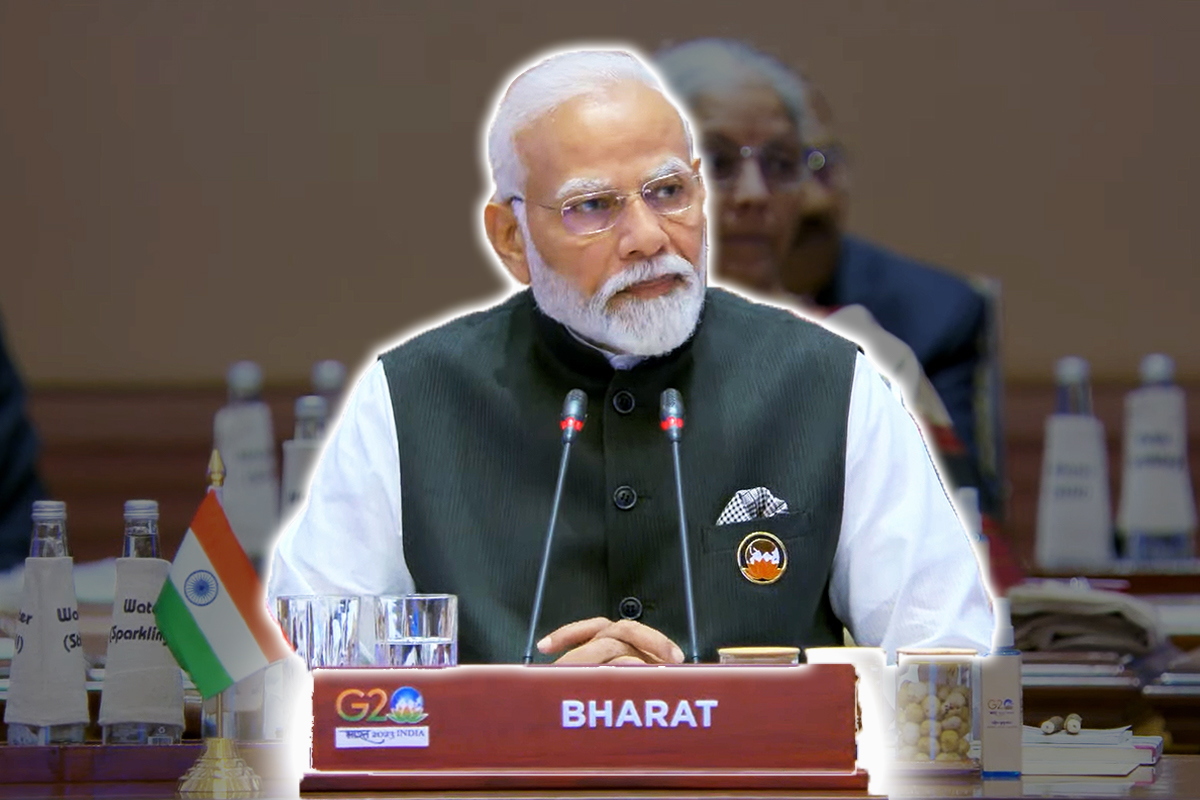‘Bharat,’ the preferred term for the country under the Modi government, gained prominence on the international stage once again when Prime Minister Narendra Modi employed it during the G20 meeting. During his opening remarks, the nameplate in front of the Prime Minister displayed ‘Bharat,’ marking a significant moment in the global recognition of this Sanskritic term as the country’s official identifier.
Furthermore, the G20 booklet distributed to foreign delegates, titled ‘Bharat, The Mother Of Democracy,’ emphasised that “Bharat” is the country’s official name, a fact enshrined in the Constitution and documented in the reports of the Constituent Assembly. Officials at the event proudly wore badges bearing the inscription ‘Bharat Official.’ However, this has caused a great deal of heartburn in the Opposition camp.
Interestingly, the Indian National Democratic Initiative Alliance boldly employed the acronym I.N.D.I.A to unite as a collective voice representing the nation. The strategic political move of using the country’s name as the foundation for a political alliance was not lost on observers. However, it’s somewhat ironic that the supporters of INDIA vehemently opposed Narendra Modi’s use of ‘Bharat’ on the nameplate during the G20 summit, despite the clear political origins of their own decision.
ALSO READ: G20’s promotion of millets and vegetarianism is not an imposition but a masterstroke in branding
“Bharat” is a name with deep historical and cultural roots that transcend any political ideology. Its origins can be traced not only to the pages of Hindu epics but also to the folklore of the freedom struggle. “Jai Bharti! Jai Bharti!” and “Wo Bharat desh hai mera!” are refrains that have echoed through generations, symbolising an unwavering commitment to the motherland.
Even the media has embraced the name, demonstrating widespread acceptance among the general population. It’s crucial to note that this isn’t an attempt to forcibly alter the country’s name but rather an effort to introduce its historical and civilizational name on the global stage and gauge reactions.
ALSO READ: India offers Africa a hand up, not a handout
However, we cannot ignore the political implications of this decision in the realm of domestic politics. In one fell swoop, the legitimacy that I.N.D.I.A sought to establish through its clever naming has become irrelevant, and their identity is now under scrutiny.
It’s understandable that Modi utilised a global platform to respond to the Opposition in kind. Simultaneously, the promotion of the name “Bharat” should be seen as part of a broader initiative aimed at strengthening and solidifying our civilizational pride and identity. And this project transcends any political affiliations.












